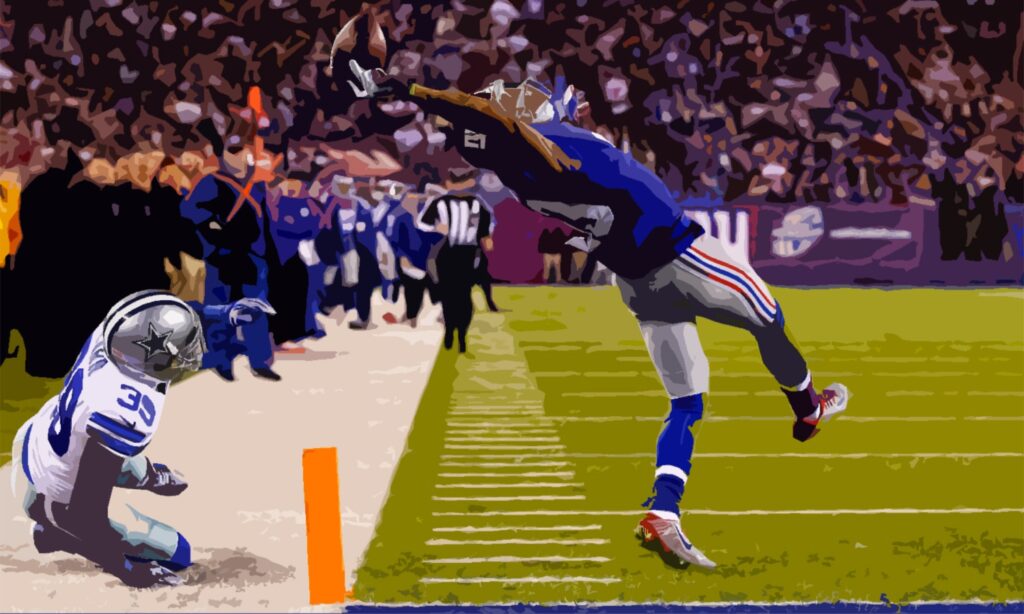Every professional sports league has a targeted finish time they’d like to uphold.
Throughout the years, the NFL has shown the greatest consistency in terms of game times compared to other sports.
For example, we’ve seen Major League Baseball games gradually increase since the 1970’s to 2022.
During that span, the change was dramatic - it crept up from a low of 2hrs 27min to over 3hrs in actual time.
But baseball also happens to be the only sport without a game clock. To prevent the games from getting out of hand, the league recently introduced a pitch clock.
As a result, the average for 2023, thus far, has been 2:39 minutes.
But the NFL uses an official game clock. And NFL games are generally longer than those of baseball.
But what exactly are we working with?
How Long are NFL Games?
The standard length of an NFL game is 3 hours and 5 minutes in real time, give or take 15 minutes. The game is split into four quarters, each fifteen minutes in length. The disparity between the game clock and actual time elapsed is due to timeouts, halftime break, two-minute warning and various in-game clock stoppages.
If the game is tied after regulation, teams play up to 10-minutes of overtime, which can increase the game duration by another 45 minutes, in real time.
When looking at the NFL calendar on Sundays, you’ll notice most games are scheduled at the 1pm, 4pm and 8pm blocks in Eastern Standard Time (EST).
The idea is to maximize viewership with minimal game overlaps at each time block.
Those 4pm games usually involve West Coast teams, meaning their games actually start at 1pm local time.
Why do NFL games take so long?
As mentioned above, there are various reasons why NFL games take over 3 hours to play out.
When watching the game on TV, these are the most common reasons as to why these games may take so long.
NFL Halftime
The NFL halftime is 13 minutes in length. It’s the longest scheduled break in every football match.
The use of halftime is multi-purpose.
For the players and coaching staff, it’s a time of rest, rally and make adjustments for the second half.
Meanwhile, halftime is also a key time for advertisers. Broadcasters air commercials during the halftime break, generating revenue for the NFL and its broadcasting partners.
For the people in attendance, it provides a necessary washroom break and restock on food or beverages.
Keep in mind, those concession stands are another source of revenue for teams. Throw in the souvenirs and memorabilia shops for further dollars.
Don’t think you’ve escaped advertisement while attending the game. There are commercials playing on the big screen along with ads plastered all over the stadium.
In-game Breaks and Pauses
Halftime alone will not make up for the great disparity in game clock and actual time. It's those in-game stops such as incomplete pass, out of bounds, touchbacks, the conclusion of a punt play and so on.
Below is a list of the main stoppages in the game.
Scenario Description
Out of Bounds When a ball carrier or receiver carrying the football goes out of bounds, the game clock stops until the ball is snapped for the next play.
Incomplete Pass When a forward pass is ruled incomplete, the game clock stops until the ball is snapped for the next play.
Timeouts Either team can call a timeout to stop the clock. Each team is allowed three timeouts per half. These can be used for various strategic purposes, including regrouping, making substitutions, or stopping the clock to conserve time.
Two-Minute Warning In the first and second halves of a game, there is an automatic clock stoppage called the "two-minute warning" when there are two minutes or less left on the game clock. This allows both teams to make additional adjustments and strategic decisions.
Change of Possession The game clock stops when there's a change of possession, such as a turnover (interception or fumble recovery) or a team punting the ball to the opponent.
Scoring Plays The clock stops momentarily after a touchdown, field goal, or safety to allow for the scoring team's kickoff and any ensuing play.
Measuring for a First Down When officials are measuring for a first down, the game clock is stopped. It restarts once the ball is declared "ready for play."
Penalties In certain situations, such as defensive penalties, the game clock may be stopped temporarily. The clock often resumes when the ball is spotted and deemed "ready for play."
Administrative Stoppage The game clock may be stopped for administrative reasons, such as injury timeouts or challenges by coaches (replay reviews).
End of a Quarter The game clock naturally stops at the end of each quarter.
How long is NFL Overtime and how does it work?
NFL games that reach overtime are quite rare. The likelihood they end in a tie is even less frequent.
If you were to look at the NFL standings in recent years, you’ll come across a game or two that end in a draw each year.
The reason can be attributed to the change of rules in overtime that maximizes the chance of scoring.
Note that the overtime period is only 10-minutes long in game clock, but can last up to 45 minutes in actual time.
However, the game is expected to finish much sooner than that based on the following rules.
In overtime, a modified sudden-death format is used. Each team has an opportunity to possess the ball unless the first possession results in a touchdown.
Should the first team score a field goal, the other team gets a possession.
If they score a touchdown, they win. If they kick a field goal, the game continues.
The game goes to sudden death if both teams are tied after each of their first possession. The next team to score a field goal or touchdown wins the game.
Both teams are allowed two timeouts and the two-minute warning still applies.
If a NFL Game Starts at _pm, what time will it end? Halftime?
| Start Time | Halftime | End Time (+/- 15min) |
|---|---|---|
| 1:00pm | 2:30pm | 4:05pm |
| 4:00pm | 5:30pm | 7:05pm |
| 4:05pm | 5:35pm | 7:10pm |
| 4:25pm | 5:55pm | 7:30pm |
| 6:30pm (Super Bowl) | 8:00pm | 10:00pm |
| 7:00pm | 8:30pm | 10:05pm |
| 7:15pm | 8:45pm | 10:20pm |
| 8:15pm | 9:45pm | 11:20pm |
| 8:20pm | 9:50pm | 11:25pm |
Final Thoughts
While NFL games are made up of many stop-and-go plays, it is one of the most exciting sport to watch.
You’ll witness phenomenal passes and rushes, bone-crushing hits and momentum-shifting plays.
It’s no wonder each stadium can house a large audience (58,000-82,500), with the Super Bowl game being one of the most televised matches worldwide.
Those three hours of watch time will breeze by, unless your team finds itself wrong side of a blowout.
There’s really no need for most games to reach overtime, as you’d be content the game ending in regulation.
As stated earlier, it’s not very common for games to end up in overtime.
The most memorable overtime I can remember is that of Super Bowl LI (2017) between the New England Patriots and Atlanta Falcons.
What made this game so fascinating was that the Patriots were able to erase a 28-3 Falcons second half lead.
It was also the largest comeback ever in a Super Bowl game.
The Patriots managed to seal the deal by winning the coin toss in overtime and scoring a touchdown on the one and only drive.
Ask anybody how long that game was - in this case, I don’t think anyone cared.






